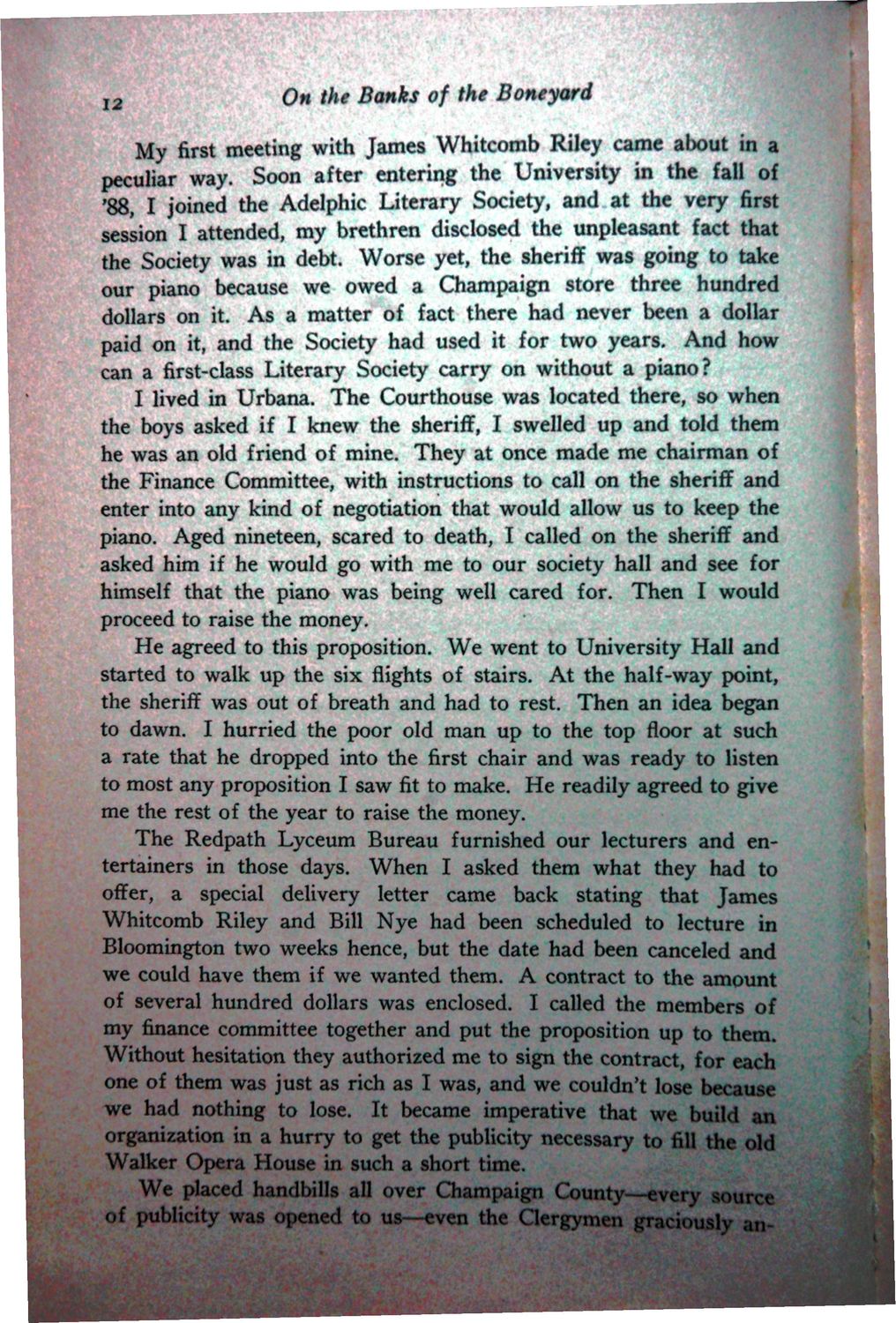| |
| |
Caption: Book - Banks of the Boneyard (Charles Kiler)
This is a reduced-resolution page image for fast online browsing.

EXTRACTED TEXT FROM PAGE:
j2 On the Banks of the Boneyard My first meeting with James Whitcomb Riley came about in a peculiar way. Soon after entering the University in the fall of '88, I joined the Adelphic Literary Society, and at the very first session I attended, my brethren disclosed the unpleasant fact that the Society was in debt. Worse yet, the sheriff was going to take our piano because we owed a Champaign store three hundred dollars on it. As a matter of fact there had never been a dollar paid on it, and the Society had used it for two years. And how can a first-class Literary Society carry on without a piano? I lived in Urbana. The Courthouse was located there, so when the boys asked if I knew the sheriff, I swelled up and told them he was an old friend of mine. They at once made me chairman of the Finance Committee, with instructions to call on the sheriff and enter into any kind of negotiation that would allow us to keep the piano. Aged nineteen, scared to death, I called on the sheriff and asked him if he would go with me to our society hall and see for himself that the piano was being well cared for. Then I would proceed to raise the money. He agreed to this proposition. We went to University Hall and started to walk up the six flights of stairs. At the half-way point, the sheriff was out of breath and had to rest. Then an idea began to dawn. I hurried the poor old man up to the top floor at such a rate that he dropped into the first chair and was ready to listen to most any proposition I saw fit to make. He readily agreed to give me the rest of the year to raise the money. The Redpath Lyceum Bureau furnished our lecturers and entertainers in those days. When I asked them what they had to offer, a special delivery letter came back stating that James Whitcomb Riley and Bill Nye had been scheduled to lecture in Bloomington two weeks hence, but the date had been canceled and we could have them if we wanted them. A contract to the amount of several hundred dollars was enclosed. I called the members of my finance committee together and put the proposition up to them. Without hesitation they authorized me to sign the contract, for each one of them was just as rich as I was, and we couldn't lose because we had nothing to lose. It became imperative that we build an organization in a hurry to get the publicity necessary to (ill the old Walker Opera House in such a short time. We placed handbills all over Champaign County—every source of publicity was opened to us—even the Clergymen graciously an
| |